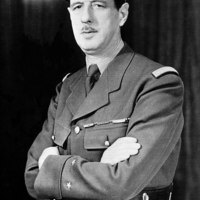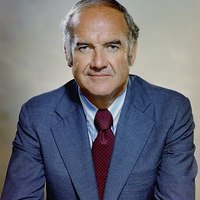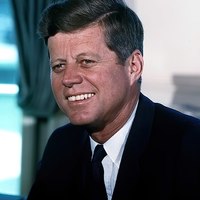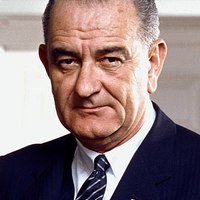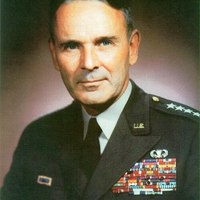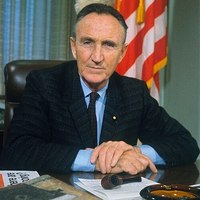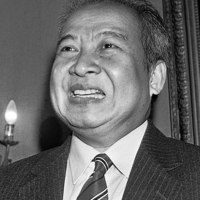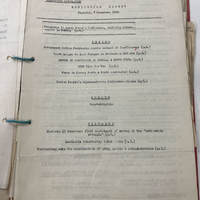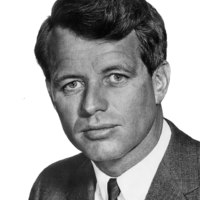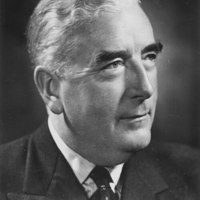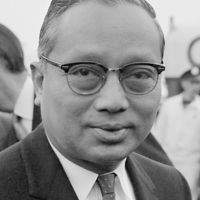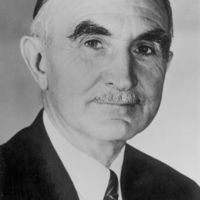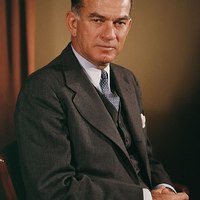Vietnam
- 1937— the BBC began planning a shortwave transmitting station to relay BBC Empire signals from the United Kingdom to the Far East
- 1946 —The British Far Eastern Broadcasting Service began broadcasting at Jurong transmitting live programmes in English, Burmese, Indonesian and Thai from studios at Singapore's Cathay Building on Thomson Rd.
- 1949 —These studios moved to Caldecott Hill. B.F.E.B.S. shared the site with Radio Malaya (Singapore). Operations consisted of live broadcasting in English, Indonesian and Siamese, news editing and monitoring.
- Christmas Day, 1949 —The station was again moved to Tebrau on the mainland of Malaya, and control of B.F.E.B. S. was handed over by the Foreign Office to the BBC.
- August 1965 — BBC Far Eastern Service closed down its studio operations in Singapore. It became the BBC Far Eastern Relay Station in 1974, and it is still on the air.
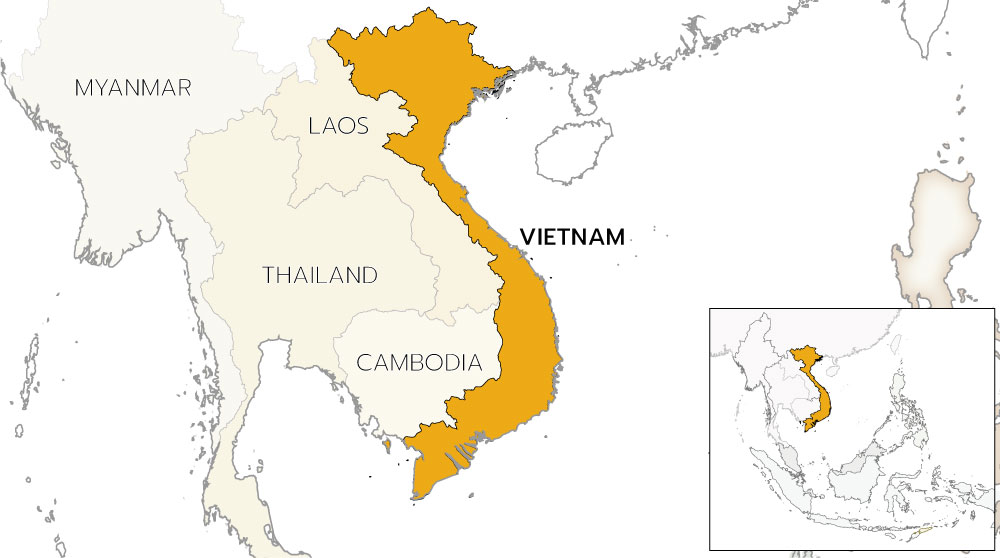
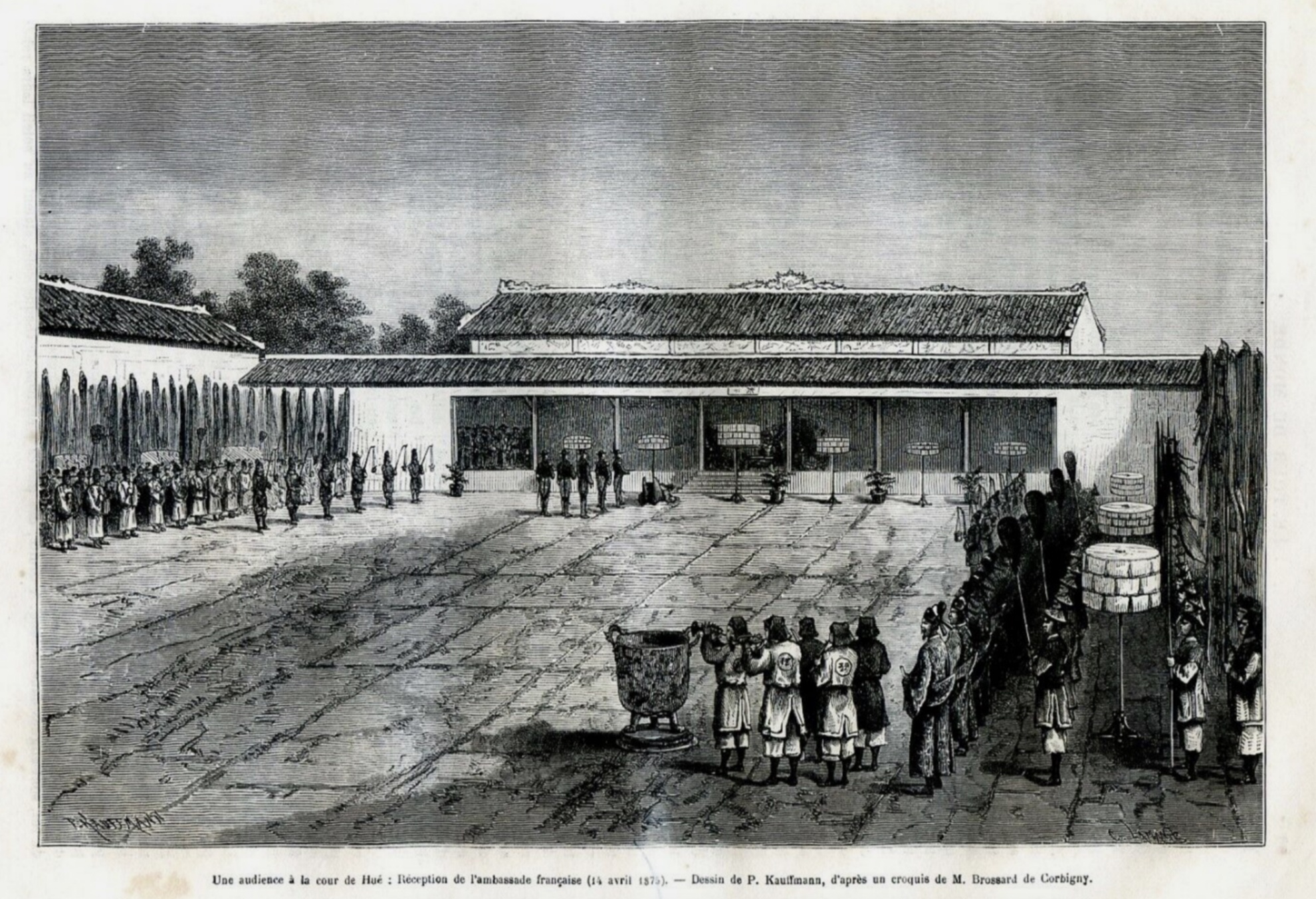
Read More
Malaysia
Indonesia
Singapore
Myanmar
Hong Kong
Vietnam
Thailand
Cambodia
The Philippines
Brunei
Laos
Timor-Leste
Search
15 items
-
Charles André Joseph Marie de Gaulle ( də GOHL, də GAWL, French: [ʃaʁl də ɡol] ; 22 November 1890 – 9 November 1970) was a French army officer and statesman who led the Free French Forces against Nazi Germany in World War II and chaired the Provisional Government of the French Republic from 1944 to 1946 in order to restore democracy in France. In 1958 amid the Algerian War he came out of retirement when appointed Prime Minister by President René Coty. He rewrote the Constitution of France and founded the Fifth Republic after approval by referendum. He was elected President of France later that year, a position he held until his resignation in 1969. Born in Lille, he was a decorated officer of the First World War, wounded several times and taken prisoner by the Germans. During the interwar period, he advocated mobile armoured divisions. During the German invasion of May 1940, he led an armoured division which counterattacked the invaders; he was then appointed Undersecretary for War. Refusing to accept his government's armistice with Germany, De Gaulle fled to England and exhorted the French to continue the fight in his Appeal of 18 June. He led the Free French Forces and later headed the French National Liberation Committee and emerged as the undisputed leader of Free France. He became head of the Provisional Government of the French Republic in June 1944, the interim government of France following its liberation. As early as 1944, De Gaulle introduced a dirigiste economic policy, which included substantial state-directed control over a capitalist economy, which was followed by 30 years of unprecedented growth, known as the Trente Glorieuses. He resigned in 1946, but continued to be politically active as founder of the Rally of the French People. He retired in the early 1950s and wrote his War Memoirs, which quickly became a staple of modern French literature. When the Algerian War threatened to bring the unstable Fourth Republic to collapse, the National Assembly brought him back to power during the May 1958 crisis. He founded the Fifth Republic with a strong presidency; he was elected with 78% of the vote to continue in that role. He managed to keep France together while taking steps to end the war, much to the anger of the Pieds-Noirs (ethnic Europeans born in Algeria) and the armed forces. He granted independence to Algeria and acted progressively towards other French colonies. In the context of the Cold War, De Gaulle initiated his "politics of grandeur", asserting that France as a major power should not rely on other countries, such as the United States, for its national security and prosperity. To this end, he pursued a policy of "national independence" which led him to withdraw from NATO's integrated military command and to launch an independent nuclear strike force that made France the world's fourth nuclear power. He restored cordial Franco-German relations with Konrad Adenauer to create a European counterweight between the Anglo-American and Soviet spheres of influence through the signing of the Élysée Treaty on 22 January 1963. De Gaulle opposed any development of a supranational Europe, favouring Europe as a continent of sovereign nations. De Gaulle openly criticised the US intervention in Vietnam and the "exorbitant privilege" of the US dollar. In his later years, his support for the slogan "Vive le Québec libre" and his two vetoes of Britain's entry into the European Economic Community generated considerable controversy in both North America and Europe. Although reelected to the presidency in 1965, he faced widespread protests by students and workers in May 1968, but had the Army's support and won a snap election with an increased majority in the National Assembly. De Gaulle resigned in 1969 after losing a referendum in which he proposed more decentralisation. He died a year later at the age of 79, leaving his presidential memoirs unfinished. Many French political parties and leaders claim a Gaullist legacy; many streets and monuments in France and other parts of the world were dedicated to his memory after his death. (Wikipedia) More »Person
-
George Stanley McGovern (July 19, 1922 – October 21, 2012) was an American historian and South Dakota politician who was a U.S. representative and three-term U.S. senator, and the Democratic Party presidential nominee in the 1972 presidential election. McGovern grew up in Mitchell, South Dakota, where he became a renowned debater. He volunteered for the U.S. Army Air Forces upon the country's entry into World War II. As a B-24 Liberator pilot, he flew 35 missions over German-occupied Europe from a base in Italy. Among the medals he received was a Distinguished Flying Cross for making a hazardous emergency landing of his damaged plane and saving his crew. After the war he earned degrees from Dakota Wesleyan University and Northwestern University, culminating in a PhD, and served as a history professor. He was elected to the U.S. House of Representatives in 1956 and re-elected in 1958. After a failed bid for the U.S. Senate in 1960, he was a successful candidate in 1962. As a senator, McGovern was an example of modern American liberalism. He became most known for his outspoken opposition to the growing U.S. involvement in the Vietnam War. He staged a brief nomination run in the 1968 presidential election as a stand-in for the assassinated Robert F. Kennedy. The subsequent McGovern–Fraser Commission fundamentally altered the presidential nominating process, by increasing the number of caucuses and primaries and reducing the influence of party insiders. The McGovern–Hatfield Amendment sought to end the Vietnam War by legislative means but was defeated in 1970 and 1971. McGovern's long-shot, grassroots-based 1972 presidential campaign found triumph in gaining the Democratic nomination but left the party split ideologically, and the failed vice-presidential pick of Thomas Eagleton undermined McGovern's credibility. In the general election McGovern lost to incumbent Richard Nixon in one of the biggest landslides in U.S. electoral history. Though re-elected to the Senate in 1968 and 1974, McGovern was defeated in his bid for a fourth term in 1980. Beginning with his experiences in war-torn Italy and continuing throughout his career, McGovern was involved in issues related to agriculture, food, nutrition, and hunger. As the first director of the Food for Peace program in 1961, McGovern oversaw the distribution of U.S. surpluses to the needy abroad and was instrumental in the creation of the United Nations-run World Food Programme. As sole chairman of the Senate Select Committee on Nutrition and Human Needs from 1968 to 1977, McGovern publicized the problem of hunger within the United States and issued the "McGovern Report", which led to a new set of nutritional guidelines for Americans. McGovern later served as U.S. ambassador to the United Nations Agencies for Food and Agriculture from 1998 to 2001 and was appointed the first UN global ambassador on world hunger by the World Food Programme in 2001. The McGovern–Dole International Food for Education and Child Nutrition Program has provided school meals for millions of children in dozens of countries since 2000 and resulted in McGovern's being named World Food Prize co‑laureate in 2008. (Wikipedia) More »Person
-
In a recent program, James Hogg narrates interviews with two members of a 50-person party that had just returned from Vietnam, where they attempted to stop the bombing. The date of the program was March 16, 1968, and the participants included speakers Andrew Hornung, Philippa Moody, and John Roberts, as well as interviewees Kit Masters and Michael Meech. The program did not have an announcer. More »Spoken voice |Topic: Military Conflict |Audio
-
John Fitzgerald Kennedy (May 29, 1917 – November 22, 1963), often referred to as JFK, was an American politician who served as the 35th president of the United States from 1961 until his assassination in 1963. He was the youngest person elected president. Kennedy served at the height of the Cold War, and the majority of his foreign policy concerned relations with the Soviet Union and Cuba. A Democrat, Kennedy represented Massachusetts in both houses of the U.S. Congress prior to his presidency. Born into the prominent Kennedy family in Brookline, Massachusetts, Kennedy graduated from Harvard University in 1940, joining the U.S. Naval Reserve the following year. During World War II, he commanded PT boats in the Pacific theater. Kennedy's survival following the sinking of PT-109 and his rescue of his fellow sailors made him a war hero and earned the Navy and Marine Corps Medal, but left him with serious injuries. After a brief stint in journalism, Kennedy represented a working-class Boston district in the U.S. House of Representatives from 1947 to 1953. He was subsequently elected to the U.S. Senate, serving as the junior senator for Massachusetts from 1953 to 1960. While in the Senate, Kennedy published his book, Profiles in Courage, which won a Pulitzer Prize. Kennedy ran in the 1960 presidential election. His campaign gained momentum after the first televised presidential debates in American history, and he was elected president, narrowly defeating Republican opponent Richard Nixon, the incumbent vice president. Kennedy's presidency saw high tensions with communist states in the Cold War. He increased the number of American military advisers in South Vietnam, and the Strategic Hamlet Program began during his presidency. In 1961, he authorized attempts to overthrow the Cuban government of Fidel Castro in the failed Bay of Pigs Invasion and Operation Mongoose. In October 1962, U.S. spy planes discovered Soviet missile bases had been deployed in Cuba. The resulting period of tensions, termed the Cuban Missile Crisis, nearly resulted in nuclear war. In August 1961, after East German troops erected the Berlin Wall, Kennedy sent an army convoy to reassure West Berliners of U.S. support, and delivered one of his most famous speeches in West Berlin in June 1963. In 1963, Kennedy signed the first nuclear weapons treaty. He presided over the establishment of the Peace Corps, Alliance for Progress with Latin America, and the continuation of the Apollo program with the goal of landing a man on the Moon before 1970. He supported the civil rights movement but was only somewhat successful in passing his New Frontier domestic policies. On November 22, 1963, Kennedy was assassinated in Dallas. His vice president, Lyndon B. Johnson, assumed the presidency. Lee Harvey Oswald was arrested for the assassination, but he was shot and killed by Jack Ruby two days later. The FBI and the Warren Commission both concluded Oswald had acted alone, but conspiracy theories about the assassination persist. After Kennedy's death, Congress enacted many of his proposals, including the Civil Rights Act of 1964 and the Revenue Act of 1964. Kennedy ranks highly in polls of U.S. presidents with historians and the general public. His personal life has been the focus of considerable sustained interest following public revelations in the 1970s of his chronic health ailments and extramarital affairs. Kennedy is the most recent U.S. president to have died in office. (Wikipedia) More »Person
-
Lyndon Baines Johnson (; August 27, 1908 – January 22, 1973), often referred to by his initials LBJ, was an American politician who served as the 36th president of the United States from 1963 to 1969. He became president after the assassination of John F. Kennedy, under whom he had served as the 37th vice president from 1961 to 1963. A Democrat from Texas, Johnson also served as a U.S. representative and U.S. senator. Born in Stonewall, Texas, Johnson worked as a high school teacher and a congressional aide before winning election to the U.S. House of Representatives in 1937. In 1948, he was controversially declared winner in the Democratic Party's primary for the 1948 Senate election in Texas and won the general election. He became Senate majority whip in 1951, Senate Democratic leader in 1953 and majority leader in 1954. In 1960, Johnson ran for the Democratic presidential nomination. Ultimately, Senator Kennedy bested Johnson and his other rivals for the nomination before surprising many by offering to make Johnson his vice presidential running mate. The Kennedy–Johnson ticket won the general election. Vice President Johnson assumed the presidency in 1963, after President Kennedy was assassinated. The following year, Johnson was elected to the presidency in a landslide, winning the largest share of the popular vote for the Democratic Party in history, and the highest for any candidate since the advent of widespread popular elections in the 1820s. Johnson's Great Society was aimed at expanding civil rights, public broadcasting, access to health care, aid to education and the arts, urban and rural development, and public services. He sought to create better living conditions for low-income Americans by spearheading the war on poverty. As part of these efforts, Johnson signed the Social Security Amendments of 1965, which resulted in the creation of Medicare and Medicaid. Johnson made the Apollo program a national priority; enacted the Higher Education Act of 1965, which established federally insured student loans; and signed the Immigration and Nationality Act of 1965, which laid the groundwork for U.S. immigration policy today. Johnson's stance on civil rights put him at odds with other white, Southern Democrats. His civil rights legacy was shaped by the Civil Rights Act of 1964, the Voting Rights Act of 1965, and the Civil Rights Act of 1968. His foreign policy prioritized containment of communism, including in the ongoing Vietnam War. He launched a full-scale military intervention in Southeast Asia, dramatically increasing the number of American military personnel deployed; casualties soared among U.S. soldiers and Vietnam civilians. In 1968, the communist Tet Offensive inflamed the anti-war movement and public opinion turned against America's involvement in the war. In Europe, Johnson maintained the postwar policies of his predecessors, by continuing to promote and foster political integration and economic cooperation among Western European nations.During his presidency, the American political landscape transformed significantly, as white Southerners who were once staunch Democrats began moving to the Republican Party and Black voters who sporadically supported the Democrats prior to 1964 began shifting towards the party in historic numbers. Due to his domestic agenda, Johnson's presidency marked the peak of modern American liberalism in the 20th century. Johnson faced further troubles with race riots in major cities and increasing crime. His political opponents seized the opportunity and raised demands for "law and order" policies. Johnson began his presidency with near-universal support, but his approval declined throughout his presidency as the public became frustrated with both the Vietnam War and domestic unrest. Johnson initially sought to run for re-election; however, following disappointing results in the New Hampshire primary he withdrew his candidacy. Johnson returned to his Texas ranch, where he died in 1973. Public opinion and academic assessments of his legacy have fluctuated greatly ever since. Historians and scholars rank Johnson in the upper tier for his accomplishments regarding domestic policy. His administration passed many major laws that made substantial changes in civil rights, health care, welfare, and education. Conversely, Johnson is strongly criticized for his foreign policy, namely presiding over escalated American involvement in the Vietnam War. (Wikipedia) More »Person
-
Maxwell Davenport Taylor (August 26, 1901 – April 19, 1987) was a senior United States Army officer and diplomat of the mid-20th century. He served with distinction in World War II, most notably as commander of the 101st Airborne Division, nicknamed "The Screaming Eagles." After the war, he served as the fifth chairman of the Joint Chiefs of Staff, having been appointed by President John F. Kennedy. He is the father of biographer and historian John Maxwell Taylor and of military historian and author Thomas Happer Taylor. A controversial figure, Taylor was considered, along with Secretary of Defense Robert McNamara, to have played a major role during the early days of the Vietnam War in the decision to deploy US combat troops to Vietnam and to escalate the conflict more generally. (Wikipedia) More »Person
-
Michael Joseph Mansfield (March 16, 1903 – October 5, 2001) was an American Democratic Party politician and diplomat who represented Montana in the United States House of Representatives from 1943 to 1953 and United States Senate from 1953 to 1977. As the leader of the Senate Democratic Caucus from 1961 to 1977, Mansfield was the second longest-serving party leader Senate history, after Mitch McConnell. During his tenure, he shepherded Great Society programs through the Senate. Born in Brooklyn, Mansfield grew up in Great Falls, Montana. He lied about his age to serve in the United States Navy during World War I. After the war, he became a professor of history and political science at the University of Montana. He won election to the House of Representatives and served on the House Committee on Foreign Affairs during World War II. In 1952, he defeated incumbent Republican Senator Zales Ecton to take a seat in the Senate. Mansfield served as Senate Majority Whip from 1957 to 1961. Mansfield ascended to Senate Majority Leader after Lyndon B. Johnson resigned from the Senate to become vice president. In the later years of the Vietnam War, he opposed escalation of American involvement and supported President Richard Nixon's plans for Vietnamization. After retiring from the Senate, Mansfield served as United States Ambassador to Japan from 1977 to 1988. Mansfield is the longest-serving American ambassador to Japan in history. Upon his retirement, he was awarded the nation's highest civilian honor, the Presidential Medal of Freedom. Mansfield later served for a time as a senior adviser on East Asian affairs to Goldman Sachs. (Wikipedia) More »Person
-
Ngô Đình Nhu; 7 October 1910 – 2 November 1963; baptismal name Jacob) was a Vietnamese archivist and politician.[1] He was the younger brother and chief political advisor of South Vietnam's first president, Ngô Đình Diệm. Although he held no formal executive position, he wielded immense unofficial power, exercising personal command of both the ARVN Special Forces (a paramilitary unit which served as the Ngô family's de facto private army) and the Cần Lao political apparatus (also known as the Personalist Labor Party) which served as the regime's de facto secret police. More »Person
-
Norodom Sihanouk (; 31 October 1922 – 15 October 2012) was a Cambodian statesman, Sangkum and FUNCINPEC politician, film director, and composer who led Cambodia in various capacities throughout his long career, most often as both King and Prime Minister of Cambodia. In Cambodia, he is known as Samdech Euv (meaning "King Father"). During his lifetime, Cambodia was under various regimes, from French colonial rule (until 1953), a Japanese puppet state (1945), an independent kingdom (1953–1970), a military republic (1970–1975), the Khmer Rouge regime (1975–1979), a Vietnamese-backed communist regime (1979–1989), a transitional communist regime (1989–1993) to eventually another kingdom (since 1993). Sihanouk was the only child of Prince Norodom Suramarit and Princess Sisowath Kossamak, daughter of King Sisowath Monivong. When his grandfather Monivong died in 1941, Sihanouk became king amidst French colonial rule. After the Japanese occupation of Cambodia during World War II, he secured Cambodian independence from France in 1953. He abdicated in 1955 and was succeeded by his father, Suramarit, so as to directly participate in politics. Sihanouk's political organization Sangkum won the general elections that year, and he became prime minister of Cambodia. He governed the country under one-party rule and suppressed political dissent. After his father died in 1960, Sihanouk assumed a new position as Chief of State of Cambodia. Officially neutral in foreign relations, Sihanouk was closer to the communist bloc in practice. The 1970 Cambodian coup d'état ousted him, and he fled to China and North Korea, forming a government-in-exile and a resistance movement there. He encouraged Cambodians to fight the new government and backed the Khmer Rouge during the Cambodian Civil War. He returned as figurehead head of state after the Khmer Rouge's victory in 1975. His relations with the new government soured, and in 1976 he resigned. He was placed under house arrest until Vietnamese forces overthrew the Khmer Rouge in 1979. Sihanouk went into exile again and in 1981 formed FUNCINPEC, a resistance party. The following year, he became president of the Coalition Government of Democratic Kampuchea (CGDK), a broad coalition of anti-Vietnamese resistance factions which retained Cambodia's seat at the United Nations, making him Cambodia's internationally recognized head of state. In the late 1980s, informal talks were carried out to end hostilities between the Vietnam-supported People's Republic of Kampuchea and the CGDK. In 1990, the Supreme National Council of Cambodia was formed as a transitional body to oversee Cambodia's sovereign matters, with Sihanouk as its president. The 1991 Paris Peace Accords were signed, and the UN Transitional Authority in Cambodia (UNTAC) was established the following year. The UNTAC organized the general elections in 1993, and a coalition government, jointly led by his son Norodom Ranariddh and Hun Sen, was subsequently formed. Sihanouk was reinstated as Cambodia's king. He abdicated again in 2004, and the Royal Council of the Throne chose his son Sihamoni as his successor. Sihanouk died in Beijing in 2012. Between 1941 and 2006, Sihanouk produced and directed 50 films, some of which he acted in. The films, later described as being of low quality, often featured nationalistic elements, as did a number of the songs he wrote. Some of his songs were about his wife Monique, the nations neighboring Cambodia, and the communist leaders who supported him in his exile. In the 1980s, Sihanouk held concerts for diplomats in New York City. He also participated in concerts at his palace during his second reign. Sihanouk is remembered for his role in shaping modern Cambodia, particularly in leading the country to independence, although his reputation was damaged by his association with the Khmer Rouge in the 1970s. (Wikipedia) More »Person
-
A daily report on listener numbers and general status for Radio Malaya, dated December 8, 1949. The report covers the following topics (9 pages): a) Delegation to Asian Women's Conference in Peking b) Report on Communist China c) Report on Vietnam c) More »Article
-
Robert Francis Kennedy (November 20, 1925 – June 6, 1968), also known by his initials RFK, was an American politician and lawyer. He served as the 64th United States attorney general from January 1961 to September 1964, and as a U.S. senator from New York from January 1965 until his assassination in June 1968, when he was running for the Democratic presidential nomination. Like his brothers John F. Kennedy and Ted Kennedy, he was a prominent member of the Democratic Party and is an icon of modern American liberalism.Kennedy was born into a wealthy, political family in Brookline, Massachusetts. After serving in the U.S. Naval Reserve from 1944 to 1946, Kennedy returned to his studies at Harvard University, and later received his law degree from the University of Virginia. He began his career as a correspondent for The Boston Post and as a lawyer at the Justice Department, but later resigned to manage his brother John's successful campaign for the U.S. Senate in 1952. The following year, he worked as an assistant counsel to the Senate committee chaired by Senator Joseph McCarthy. He gained national attention as the chief counsel of the Senate Labor Rackets Committee from 1957 to 1959, where he publicly challenged Teamsters President Jimmy Hoffa over the union's corrupt practices. Kennedy resigned from the committee to conduct his brother's successful campaign in the 1960 presidential election. He was appointed United States attorney general at the age of 35, one of the youngest cabinet members in American history. He served as his brother's closest advisor until the latter's assassination in 1963.His tenure is known for advocating for the civil rights movement, the fight against organized crime and the Mafia, and involvement in U.S. foreign policy related to Cuba. He authored his account of the Cuban Missile Crisis in a book titled Thirteen Days. As attorney general, he authorized the Federal Bureau of Investigation (FBI) to wiretap Martin Luther King Jr. and the Southern Christian Leadership Conference on a limited basis. After his brother's assassination, he remained in office during the presidency of Lyndon B. Johnson for several months. He left to run for the United States Senate from New York in 1964 and defeated Republican incumbent Kenneth Keating, overcoming criticism that he was a "carpetbagger" from Massachusetts. In office, Kennedy opposed U.S. involvement in the Vietnam War and raised awareness of poverty by sponsoring legislation designed to lure private business to blighted communities (i.e., Bedford Stuyvesant Restoration project). He was an advocate for issues related to human rights and social justice by traveling abroad to eastern Europe, Latin America, and South Africa, and formed working relationships with Martin Luther King Jr., Cesar Chavez, and Walter Reuther. In 1968, Kennedy became a leading candidate for the Democratic nomination for the presidency by appealing to poor, African American, Hispanic, Catholic, and young voters. His main challenger in the race was Senator Eugene McCarthy. Shortly after winning the California primary around midnight on June 5, 1968, Kennedy was shot by Sirhan Sirhan, a 24-year-old Palestinian, allegedly in retaliation for his support of Israel following the 1967 Six-Day War. Kennedy died 25 hours later. Sirhan was arrested, tried, and convicted, though Kennedy's assassination, like his brother's, continues to be the subject of widespread analysis and numerous conspiracy theories. (Wikipedia) More »Person
-
Sir Robert Gordon Menzies (20 December 1894 – 15 May 1978) was an Australian politician and lawyer who served as the 12th prime minister of Australia from 1939 to 1941 and 1949 to 1966. He held office as the leader of the United Australia Party (UAP) in his first term, and subsequently as the inaugural leader of the Liberal Party of Australia, which he was responsible for establishing and defining in policy and political outreach. He is the longest-serving prime minister in Australian history. Menzies studied law at the University of Melbourne and became one of Melbourne's leading lawyers. He was Deputy Premier of Victoria from 1932 to 1934, and then transferred to Federal Parliament, subsequently becoming Attorney-General of Australia and Minister for Industry in the government of Joseph Lyons. In April 1939, following Lyons's death, Menzies was elected leader of the United Australia Party (UAP) and sworn in as Prime Minister. He authorised Australia's entry into World War II in September 1939, and spent four months in England to participate in meetings of Churchill's war cabinet. On his return to Australia in August 1941, Menzies found that he had lost the support of his party and consequently resigned as Prime Minister. He subsequently helped to create the new Liberal Party, and was elected its inaugural leader in August 1945. At the 1949 federal election, Menzies led the Liberal–Country coalition to victory and returned as prime minister. His appeal to the home and family, promoted via reassuring radio talks, matched the national zeitgeist as the economy grew and middle-class values prevailed; the Australian Labor Party's support had also been eroded by Cold War scares. After 1955, his government also received support from the Democratic Labour Party, a breakaway group from the Labor Party. Menzies won seven consecutive elections during his second term, eventually retiring as prime minister in January 1966. Despite the failures of his first administration, his government is remembered for its development of Australia's capital city of Canberra, its expanded post-war immigration scheme, emphasis on higher education, and national security policies, which saw Australia contribute troops to the Korean War, the Malayan Emergency, the Indonesia–Malaysia confrontation, and the Vietnam War. (Wikipedia) More »Person
-
Thant (Burmese: သန့်; MLCTS: san. [θa̰ɰ̃]; 22 January 1909 – 25 November 1974), known honorifically as U Thant (), was a Burmese diplomat and the third secretary-general of the United Nations from 1961 to 1971, the first non-Scandinavian to hold the position. He held the office for a record 10 years and one month.A native of Pantanaw, Thant was educated at the National High School and at Rangoon University. In the days of tense political climate in Burma, he held moderate views positioning himself between fervent nationalists and British loyalists. He was a close friend of Burma's first Prime Minister U Nu and served in various positions in Nu's cabinet from 1948 to 1961. Thant had a calm and unassuming demeanor that won his colleagues' respect.He was appointed Secretary-General in 1961, six weeks after his predecessor, Dag Hammarskjöld, had died in an air crash. In his first term, Thant facilitated negotiations between U.S. President John F. Kennedy and Soviet Premier Nikita Khrushchev during the Cuban Missile Crisis of 1962, helping to avert a global catastrophe. Later, in December that year, Thant ordered Operation Grandslam, which ended a secessionist insurgency in Congo. He was reappointed as Secretary-General on 2 December 1966, by a unanimous vote of the Security Council. During his second term Thant was well known for publicly criticizing U.S. conduct in the Vietnam War. He oversaw the entry of several newly independent African and Asian states into the UN. He refused to serve a third term, and retired in 1971. Thant died of lung cancer in 1974. A devout Buddhist and the foremost Burmese diplomat on the international stage, he was widely admired and held in great respect by the Burmese populace. When the military government refused him any honours, riots erupted in Rangoon; these were violently crushed by the government, leaving scores of casualties. (Wikipedia) More »Person
-
Wayne Lyman Morse (October 20, 1900 – July 22, 1974) was an American attorney and United States Senator from Oregon. Morse is well known for opposing the Democratic Party’s leadership and for his opposition to the Vietnam War on constitutional grounds.Born in Madison, Wisconsin, and educated at the University of Wisconsin and the University of Minnesota Law School, Morse moved to Oregon in 1930 and began teaching at the University of Oregon School of Law. During World War II, he was elected to the U.S. Senate as a Republican; he became an Independent after Dwight D. Eisenhower's election to the presidency in 1952. While an independent, he set a record for performing the third-longest one-person filibuster in the history of the Senate. Morse joined the Democratic Party in February 1955, and was reelected twice while a member of that party. Morse made a brief run for the Democratic Party's presidential nomination in 1960. In 1964, Morse was one of two senators to oppose the later-to-become-controversial Gulf of Tonkin Resolution. It authorized the president to take military action in Vietnam without a declaration of war. He continued to speak out against the war in the ensuing years, and lost his 1968 bid for reelection to Bob Packwood, who criticized his strong opposition to the war. Morse made two more bids for reelection to the Senate before his death in 1974. (Wikipedia) More »Person
-
James William Fulbright (April 9, 1905 – February 9, 1995) was an American politician, academic, and statesman who represented Arkansas in the United States Senate from 1945 until his resignation in 1974. As of 2023, Fulbright is the longest serving chairman in the history of the United States Senate Committee on Foreign Relations. He is best known for his strong multilateralist positions on international issues, opposition to American involvement in the Vietnam War, and the creation of the international fellowship program bearing his name, the Fulbright Program. Fulbright was an admirer of Woodrow Wilson and an avowed anglophile. He was an early advocate for American entry into World War II and aid to Great Britain, first as a college professor and then as an elected member of the U.S. House of Representatives, where he authored the Fulbright Resolution expressing support for international peacekeeping initiatives and American entry into the United Nations. After joining the Senate, Fulbright expressed support for Europeanism and the formation of a federal European union. He envisioned the Cold War as a struggle between nations – the United States and imperialist Russia – rather than ideologies. He therefore dismissed Asia as a peripheral theater of the conflict, focusing on containment of Soviet expansion into Central and Eastern Europe. He also stressed the possibility of nuclear annihilation, preferring political solutions over military solutions to Soviet aggression. After the Cuban Missile Crisis, his position moderated further to one of détente. His political stances and powerful position as Chairman of the Senate Foreign Relations Committee made him one of the most visible critics of American involvement in the Vietnam War. Although he was persuaded by President Lyndon Johnson to sponsor the Gulf of Tonkin resolution in 1964, his relationship with the President soured after the 1965 U.S. bombing of Pleiku and Fulbright's opposition to the war in Vietnam took root. Beginning in 1966, he chaired high-profile hearings investigating the conduct and progress of the war, which may have influenced the eventual American withdrawal. On domestic issues, Fulbright was a Southern Democrat and signatory to the Southern Manifesto. Fulbright also opposed the anti-Communist crusades of Joseph McCarthy and the similar investigations by the House Un-American Activities Committee. (Wikipedia) More »Person
Show filters +

